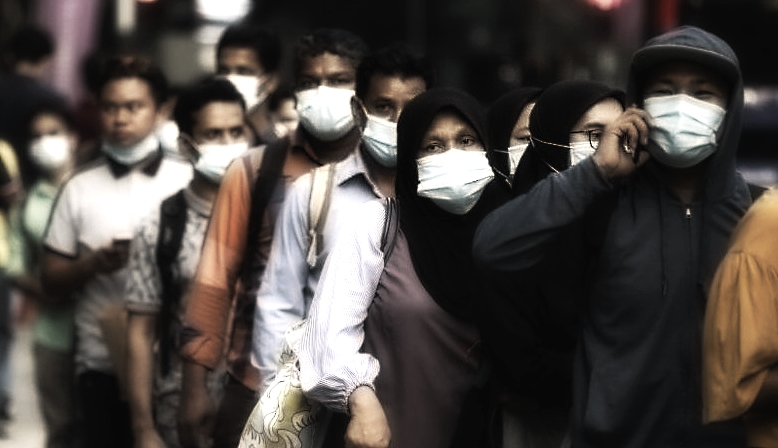Sin Chew Daily
The resilience of the coronavirus appears to be way beyond our imagination, with many new variants emerging over the past one year, including D614G, A701V and the most recent N501 in South Africa.
However, B.1.1.7 strain emerging first in the UK has been confirmed as the most infective and will sooner or later be defined as a "supervirus". So far, no pharmaceutical manufacturers or experts have been able to assure us that existing vaccines can effectively contain the spread of B.1.1.7.
As of Dec 28, as many as 81.72 million people have been diagnosed with the virus globally, with 178,000 deaths. Here in Malaysia, we have seen 20 straight days with daily new infection numbers above 1,000. Total number of infections have breached the 110,000 mark.
In other words, some 326 people have been infected out of every 100,000, putting us third highest in per capita infections among Asian states, after Singapore and the Philippines. We have been reduced from a star performer to a laggard in the fight against the virus in merely four months.
The medical team of China's Zhong Nanshan has estimated that Malaysia will see more than 170,000 positive cases by February 12 next year, when our first batch of 1.1 million vaccine doses purchased from Pfizer and other pharmaceutical manufacturers is expected to be delivered. It might take almost a whole year for the majority of the Malaysian population to get inoculated.
Nothing looks rosy in our fight against the horrendous virus.
Indeed, we are at a disadvantage in the war in view of the emergence of new mutant strains, non-compliance of SOPs among businesses and individuals, and late arrival of vaccines. Any let-up in our effort to battle the virus will make 2021 the "bleakest and darkest year", as UN puts it.
Defense ministry senior minster Ismail Sabri Yaakob recently said more and more Malaysians have failed to comply with the SOPs and as such the government might consider tightening the restrictions and reintroduce cross-state travel ban. The minister has on several occasions urged Malaysians to be more disciplined like the Taiwanese.
Besides practicing good hygiene, observing social distancing and staying home unless absolutely necessary, we must also keep an eye on asymptomatic cases and the duration the virus survives in the environment.
Many asymptomatic cases have gone undetected because people are not aware they have been infected, and still go round spreading the virus to others. Imagine a B.1.1.7 asymptomatic spreader walking in our midst!
Many people have underestimated the duration the virus survives in the environment. An April report by Lancet revealed that the coronavirus could survive for a shockingly long time in ambient temperatures.
For example, the virus attached to the dining table in a restaurant or on clothing can live for two days, on banknotes for four days, and on the outermost layer of a face mask for seven days. These things that we come into contact with every day but have largely overlooked, could be the perfect hotbed for the virus!
If the current trend of over a thousand new cases each day is not mitigated, our healthcare system could be the first to collapse.
Health DG Noor Hisham has advised asymptomatic patients to self-quarantine at home "due to delay in transferring patients to hospitals", which is actually very unwise because the patient can spread to his or her family.
During such a crucial moment, businesses must take the initiative to contain the spread of the virus, especially in overcrowded foreign worker hostels.
We cannot afford to be complacent. We must draw up long-term strategies in our fight against the virus. There are actually many things we can do with the daily reported numbers in assessing the severity of the outbreak.

ADVERTISEMENT
ADVERTISEMENT


































